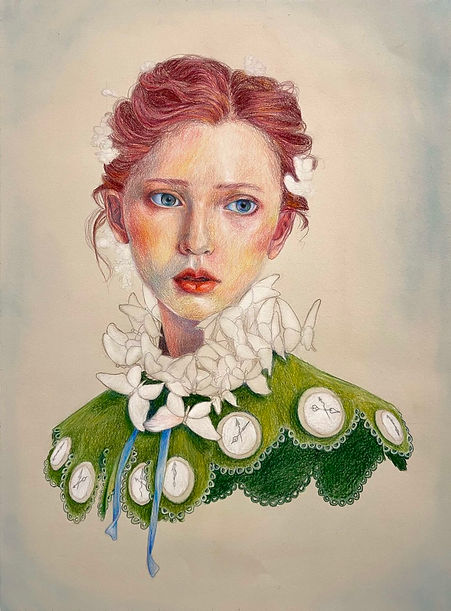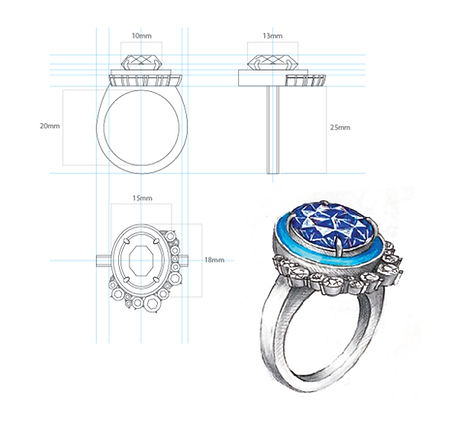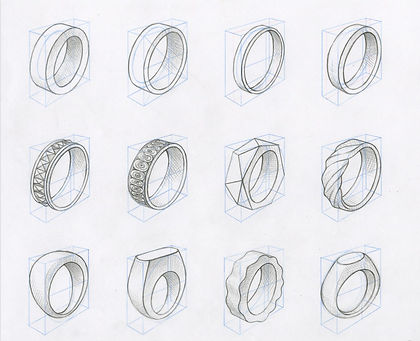The following 2D and 3D examples were gathered between 2022 and 2025, in the following Savannah College of Art and Design courses: DSGN 100, DSGN 102, DRAW 100, DRAW 101, and JEWL 140.
DSGN 100
In this course, students were taught how to use the Elements and Principles of Design to rearrange, construct, edit, and create 2D compositions. Each project focused primarily on two of the Principles of Design, while putting into place the elements (line, shape, value, texture, and color).








Depending on the students' interests, the goals of the project, specified materials, and interpretation of the instructions, students could create works that had a broad range of visual differences. This allowed for a range of portfolio opportunities for each student, and variety within the class.
Seen here are a blend of goals, including the use of Rhythm and Repetition, experimentation with value changes using a variety of mark making techniques (for visual texture), mixed media techniques, the use of Economy, Variety, Line Weight Variation, Movement, Value changes, Color experimentation, and more.




DSGN 102
During DSGN 102 (often called 3D Design), students learned to use a variety of materials to construct their projects. Each project began with a clearly stated design brief (explaining the goals and point values of each project). The classes were then taught to document their design process. Students did multiple sketches during the brainstorming phase, researched materials and relevant topics, constructed a volume study or mock-up, refined their design plan, and finally constructed their final designs.
The full processes can be seen in the segment titled STUDENT PRESENTATIONS.
I encourage students to work with new materials and process, including laser cutting technology and hand held power tools. I demonstrate each process so that they can learn new ways to construct their ideas. This gives them more confidence to try new things going forward. In this section, the materials range from cardboard, acrylic, polymer clay, foam, found objects, fabric/textiles (sewing), and more!





















DRAW 100 and 101
Drawing 100 is the entry level drawing course at SCAD. It focuses on sighting and measuring, drawing from observation, value range, and compositional understanding. Most drawings are monochromatic, or use minimal portions of the color spectrum.
Drawing 101 allows students more freedom and flexibility than the previous drawing courses. Some projects still focus on drawing from observation, but others are more broad and encourage fictional characters and the full color spectrum (including mixed media).








JEWL 140
Drawing for Jewelry designers is very important, because so many interact with clients regularly and need to understand their clients' verbal instructions. In this course, students learned to plan conceptual ideas on paper, while observing consistent linear perspective angles.
In addition to hand drawn and rendered jewelry pieces, the students used Adobe Illustrator to create an ad for their best jewelry drawings.





